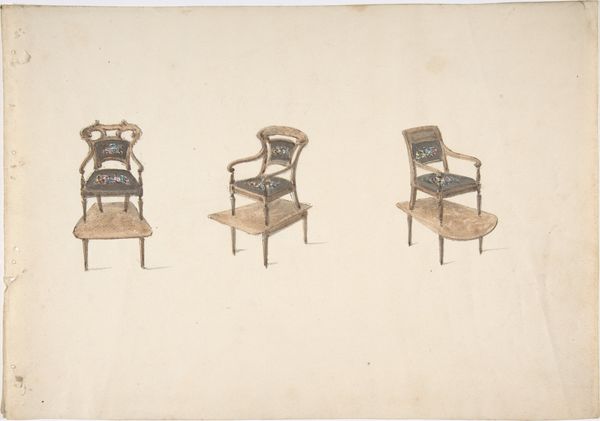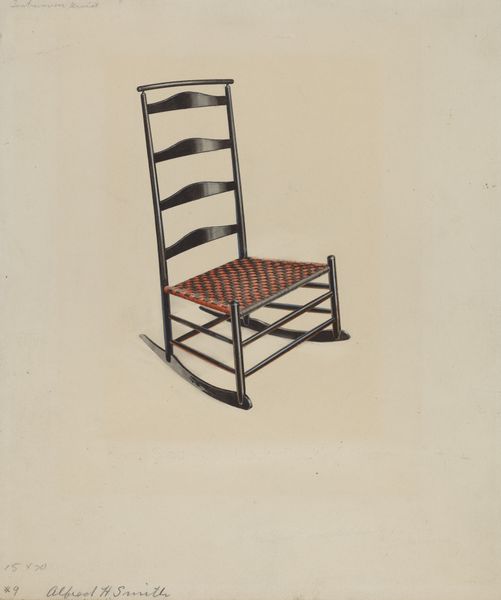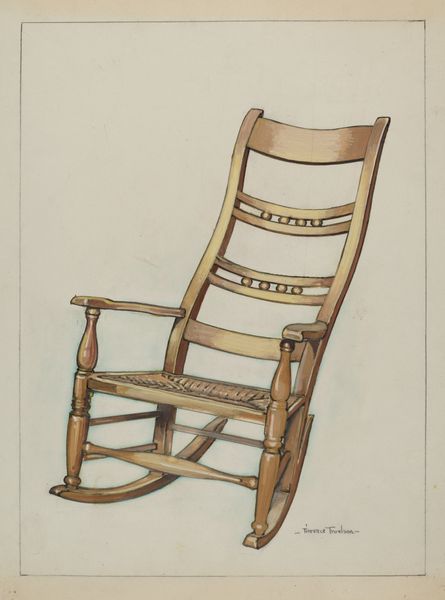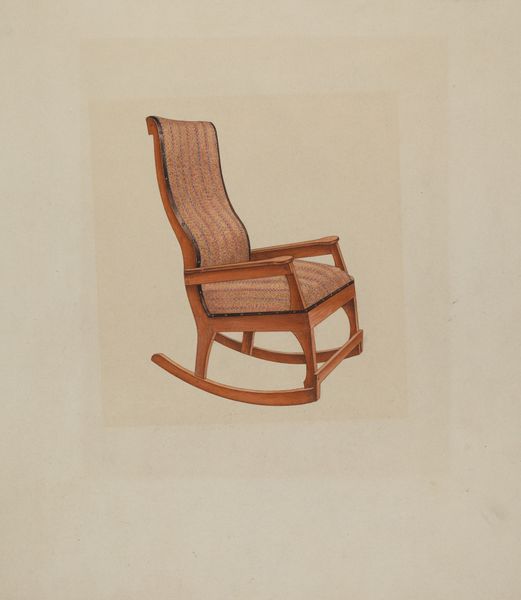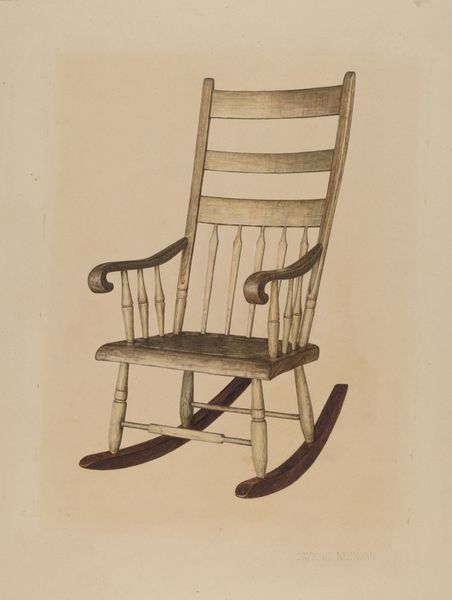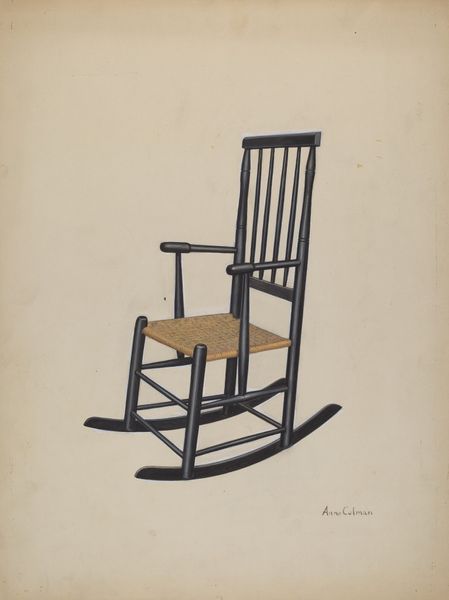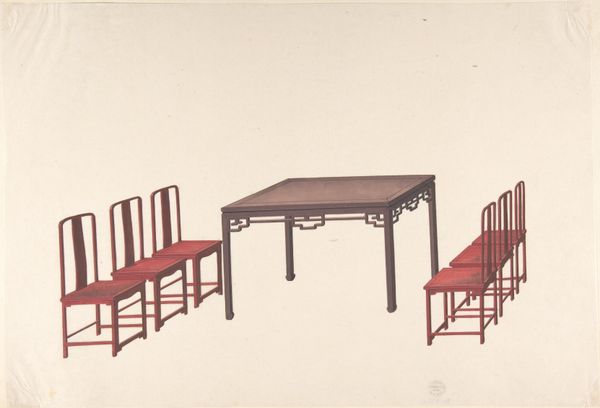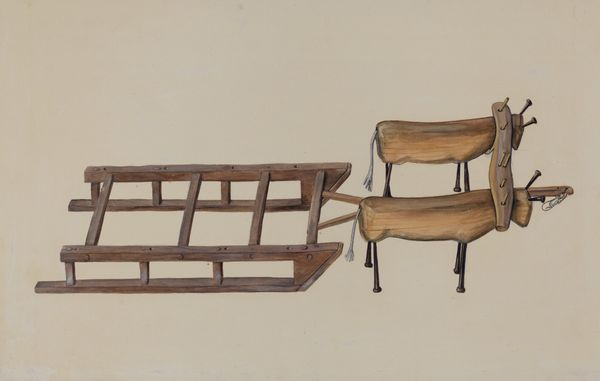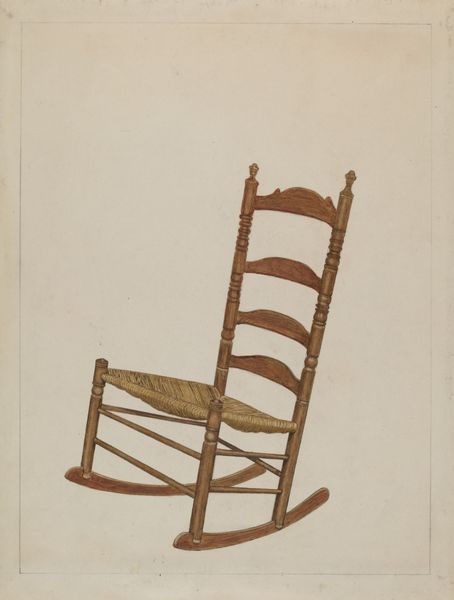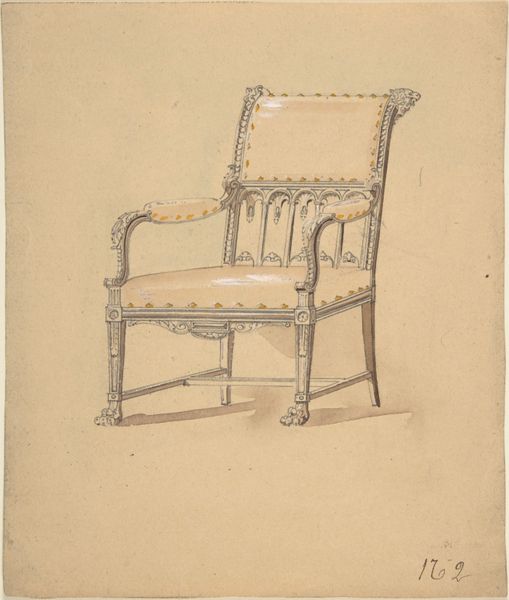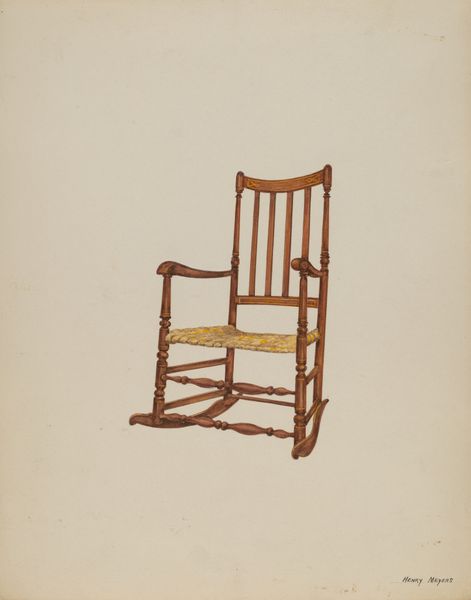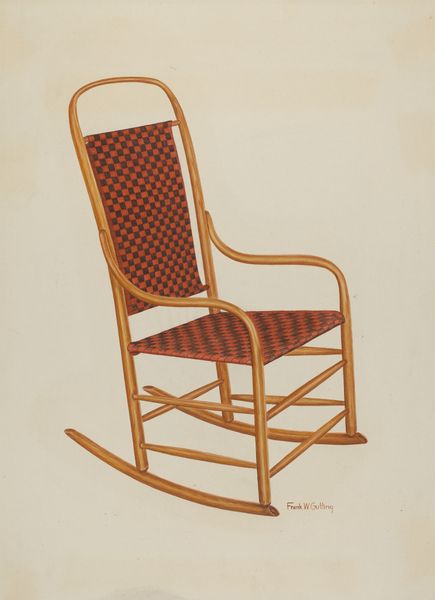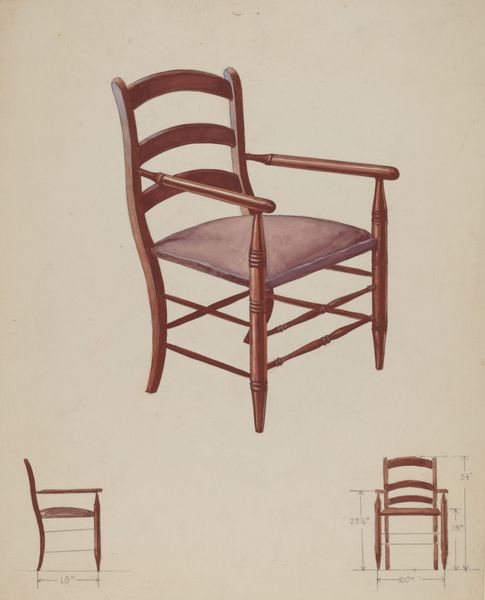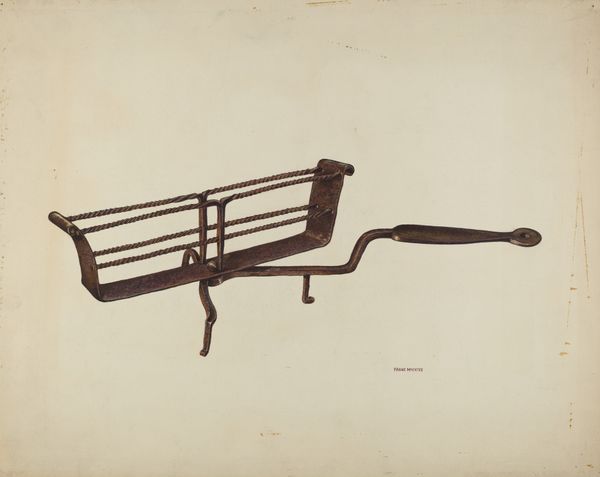
drawing, watercolor
#
drawing
#
aged paper
#
toned paper
#
light pencil work
#
quirky sketch
#
personal sketchbook
#
watercolor
#
folk-art
#
ink colored
#
sketchbook drawing
#
watercolour illustration
#
genre-painting
#
sketchbook art
#
watercolor
Dimensions: overall: 45.4 x 52.4 cm (17 7/8 x 20 5/8 in.) Original IAD Object: See data sheet for dimens. of 3 chairs.
Copyright: National Gallery of Art: CC0 1.0
Editor: Here we have Florence Truelson’s charming watercolour and ink drawing, "The Three Bear's Chairs," created around 1937. It's quite simple, really; three rocking chairs rendered on toned paper in a childlike, folk-art style. What do you see in this piece? Curator: The simplicity is deceiving. These aren't just chairs; they’re stand-ins for figures within a family. Consider the social context: The Great Depression was still impacting many, folk art was becoming celebrated as uniquely "American," a democratic art form of the people, and even gender roles of the time. I find it curious that they are isolated in a way that is divorced from domestic setting. Does it remind you of children's books or illustrations? Editor: I see it now! They remind me of the "Goldilocks and the Three Bears" storybook; it reinforces the folk-art aspect too, a connection to narrative traditions and to children’s book illustrations from that time. Are the chairs possibly stand-ins? Curator: Exactly. How were families presented and idealized in popular imagery then? Think about gender roles reflected within popular visual culture: in paintings, photographs and illustrations? Does the artist reproduce some of those tendencies, perhaps unintentionally? Is Goldilocks even absent from the composition, perhaps evicted? Editor: Well, it’s a father’s chair, a mother’s chair, and a baby bear’s chair. Now that you point that out, I almost expect those roles. Do you see this isolation as social commentary or celebration of those roles? Curator: Perhaps it is not so much social commentary. Rather, an examination and documentation of them. It almost asks "how do the narratives function" rather than commenting on the effectiveness of the narratives. Perhaps the narrative alone is doing enough heavy lifting already! How does seeing the drawing in this new light change your perspective? Editor: I initially saw just chairs but seeing how they operate within a certain socio-political environment has added a rich texture. Curator: Agreed, these objects, so ordinary, speak volumes once we consider their context.
Comments
No comments
Be the first to comment and join the conversation on the ultimate creative platform.
